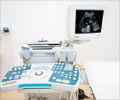- Prenatal care and tests - (http://www.womenshealth.gov/pregnancy/you-are-pregnant/prenatal-care-tests.html)
- What tests might I need during pregnancy? - (http://www.nichd.nih.gov/health/topics/preconceptioncare/conditioninfo/pages/tests-needed.aspx)
What are Prenatal Tests?
Prenatal tests are medical tests during pregnancy that are done to ensure a safe pregnancy and delivery for the mother, and a healthy baby. During a normal pregnancy, a woman is expected to see her health care provider once a month initially till the pregnancy is 28 weeks, twice a month after that till the pregnancy reaches 36 weeks, and weekly beyond that till the birth of the baby.
During the pregnancy, several tests are carried out on the mother depending on the level of risk that the mother and the baby are exposed to. The number of recommended tests vary in different countries depending on the resources available. If there is a chance of a problem to either of them, additional tests are advised beside the routine ones.
Some baseline tests like blood and urine tests are conducted at the first prenatal visit. There is always a preference for non-invasive tests for prenatal screening as compared to invasive tests. As the pregnancy progresses, tests may be recommended based on the requirement. Therefore, do not be alarmed if your doctor decides to do or skip out any of the tests listed below. Also, it is possible that your doctor may want to carry out some additional test that has not been included in the list.
Tests during each Trimester
First Trimester Tests
Tests that are carried out in the first trimester include:
- Blood tests: A blood sample from the mother is obtained with a simple needle prick and the blood is subjected to tests like:
- Blood grouping: It is extremely important to know the blood group of the mother since there could be a chance that the mother may need a transfusion during delivery. But what is more relevant is to detect if a mother is Rh negative, in which case additional precautions may be required. If a mother is Rh negative, and following delivery it is found that the baby is Rh positive, the mother has to receive an injection soon after delivery so that the future pregnancies are not affected.
- Blood counts: Blood counts are done to detect conditions like anemia. The hemoglobin content of the mother is measured in the blood sample to ensure that the mother is not iron deficient and can cope up with the body’s demand to produce extra blood and support the pregnancy.
- Test for infections: HIV testing is done to rule out HIV infection, so that adequate precautions can be taken during pregnancy and delivery if the test is positive. The mother should also be tested for other infections that can affect the baby like toxoplasmosis, syphilis, hepatitis B and rubella.
- hCG testing: Human chorionic gonadotropin (hCG) is a hormone that is secreted in pregnancy. It is detected in the blood as well as the urine. It is the same hormone that is detected in the urine in the pregnancy test. A very high level may indicate multiple pregnancy or a condition called hydatidiform mole. In such cases, an ultrasound test confirms the diagnosis.
- Cell-free fetal DNA: This is a blood test that is sometimes carried out on the mother’s blood to detect chromosomal abnormalities. It checks for increased amounts of certain chromosomes in the mother’s blood which could give an indication of a problem in the baby.
- Urine test: Urine test is done to detect any urinary tract infections which could affect the baby. Conditions like gestational diabetes and preeclampsia, which usually appear only in the second trimester, can also be detected based on urine testing.
- Ultrasound examination: An ultrasound examination in the first trimester helps to determine if the pregnancy is single or multiple, check for the heartbeat, and confirm the gestational age of the fetus and thereby calculate the estimated date of delivery. It is often done with a transvaginal probe in the first trimester. It can also detect ectopic or molar pregnancy, as well as heart and other abnormalities in the baby.
First Trimester Screen
The first trimester screen consists of 3 components:
- Ultrasound examination to determine the thickness of the back of neck of the fetus
- hCG blood level estimation
- PAPP-A (pregnancy-associated plasma protein A) estimation
An abnormal screening result may suggest a risk for chromosomal disease, though further tests are required to confirm the same.
Screening test for cystic fibrosis: This test is sometimes done to find out if any of the parent has a gene for cystic fibrosis but does not suffer from the condition. Tests for the gene are carried out on blood or saliva samples of both, the father as well as the mother.
Chorionic villus sampling: This test is done to detect any genetic abnormalities in the baby as well as to settle issues regarding disputed paternity. A small piece of the placenta is removed with the help of a needle and the DNA is analyzed. This is an invasive test and does carry a slight risk of miscarriage.
Second Trimester Tests
Tests done in the second trimester include the following:
- Ultrasound: An ultrasound is often done between 18 to 20 weeks of pregnancy to detect if the organs are normally developed. It can also assess if the amount of fluid in the amniotic sac is adequate. An ultrasound at this stage can often reveal the sex of the baby. However, in India, revealing the sex of the baby before birth is illegal.
- Triple Screen Test and Maternal Quad Screen: The triple screen test records the levels of 3 substances in the blood, alpha fetoprotein, hCG and estriol. It is usually done between 15 to 20 weeks of pregnancy. Abnormal values could point out to conditions like neural tube defects and Down’s syndrome. However, the test only suggests the possibility of these conditions, which require further tests for confirming the diagnosis.
- In case the risk of having a baby with Down’s syndrome are high, an additional substance called Inhibin A is also tested in the blood. Thus, since four substances are tested, the test is now called Maternal Quad Screen.
- Urine test: The urine is tested in the second trimester for the presence of infection, glucose to screen for diabetes and protein to detect a condition called preeclampsia. Diabetes that occurs exclusively in pregnancy is called gestational diabetes. Preeclampsia is a condition where the mother suffers from high blood pressure during pregnancy. The urine tests positive for protein. If left untreated, preeclampsia can progress to eclampsia, where the mother suffers from seizures thereby putting her own and the baby’s life in danger.
- Glucose challenge screening: The test is done at 26 to 28 weeks as a screening test for high glucose levels. High blood sugar can affect fetal growth and should therefore be detected at the earliest. The patient is given a particular amount of glucose in water to drink and blood levels are obtained after one hour. In case the test result is not in the normal range, a glucose tolerance test may be advised.
- Glucose tolerance test: The glucose tolerance test is done between 26 to 28 weeks to detect gestational diabetes in those with an abnormal glucose challenge screening test. After overnight fasting, a fasting blood glucose level is obtained in the morning. Following this, the mother is given to drink a particular amount of glucose in water, and blood glucose levels are assessed hourly for 3 hours, to understand if the body is managing the excess glucose well.
- Amniocentesis and Cordocentesis: Amniocentesis is a test done only if the baby is at a high risk of genetic disorders like Down’s syndrome and cystic fibrosis. The baby is surrounded by a sac which contains a fluid called amniotic fluid. Cells from the baby are present in this fluid. During the procedure, a needle is inserted into the sac under ultrasound guidance and a small amount of fluid is collected. The DNA from the cells in the fluid can then be analyzed for any abnormality. The test can also be performed in cases of disputed paternity to match the child’s DNA with the parent’s DNA. This test is usually done in the second trimester between 14 and 20 weeks of pregnancy. In some cases, if the results are inconclusive, cordocentesis is also done. In this procedure, blood for sampling is obtained from the umbilical cord via a needle inserted into the abdomen. The test helps to detect chromosomal and blood abnormalities in the baby.
Third Trimester Tests
Tests done in the third trimester include the following:
- Ultrasound: An ultrasound is sometimes done in the third trimester in case decreased fetal movements are present or other problems are anticipated. It determines the position of the placenta and that of the baby so that the gynecologist can plan for a vaginal delivery or caesarean.
- Fetal non-stress test: The fetal non-stress test is done in case of suspected fetal distress. The heart rate and fetal movements are recorded during the test. The heart rate of the baby normally increases in response to its movements. The absence of the increase in heart rate could indicate reduced oxygen to the baby or fetal distress, which may warrant further tests and a more careful monitoring of the pregnancy.
- Biophysical profile: A biophysical profile involves the use of ultrasound along with non-stress test. It is done only in high-risk cases. Using these two tests – five parameters are assessed which include baby's breathing, movement, muscle tone and increase in heart rate in response to movement, and the amount of amniotic fluid. The test helps to monitor the baby’s health and decide if an early delivery is needed.
- Test for group B streptococcus: Group B streptococcus infection from the vagina can affect the baby during its passage through the birth canal during vaginal delivery and cause severe infection in the newborn. Therefore, a test for the bacterium on a vaginal and rectal swab obtained from the mother can ensure that the infection is treated well before birth of the baby.










